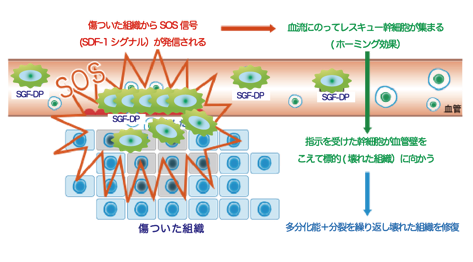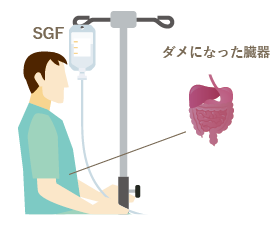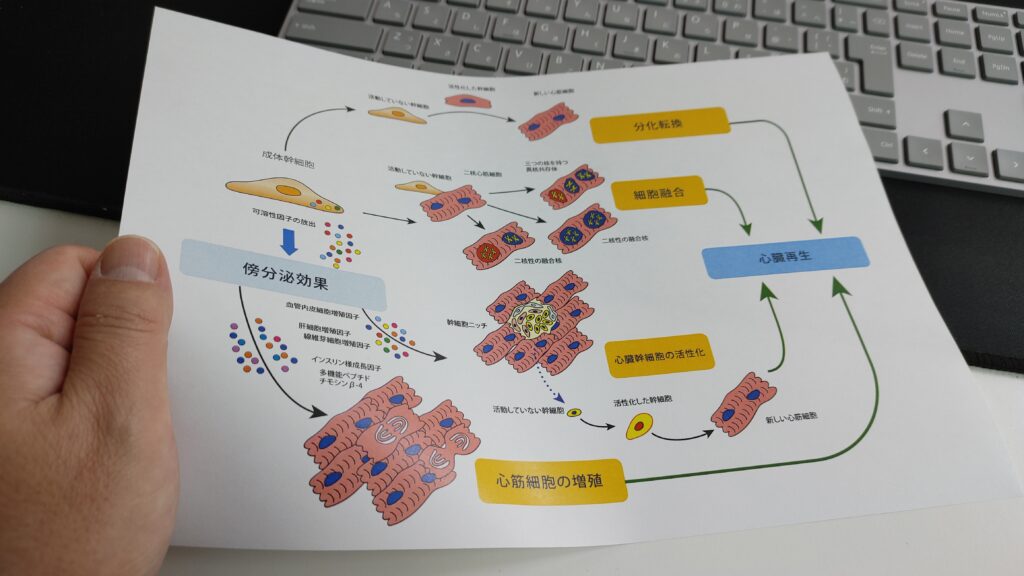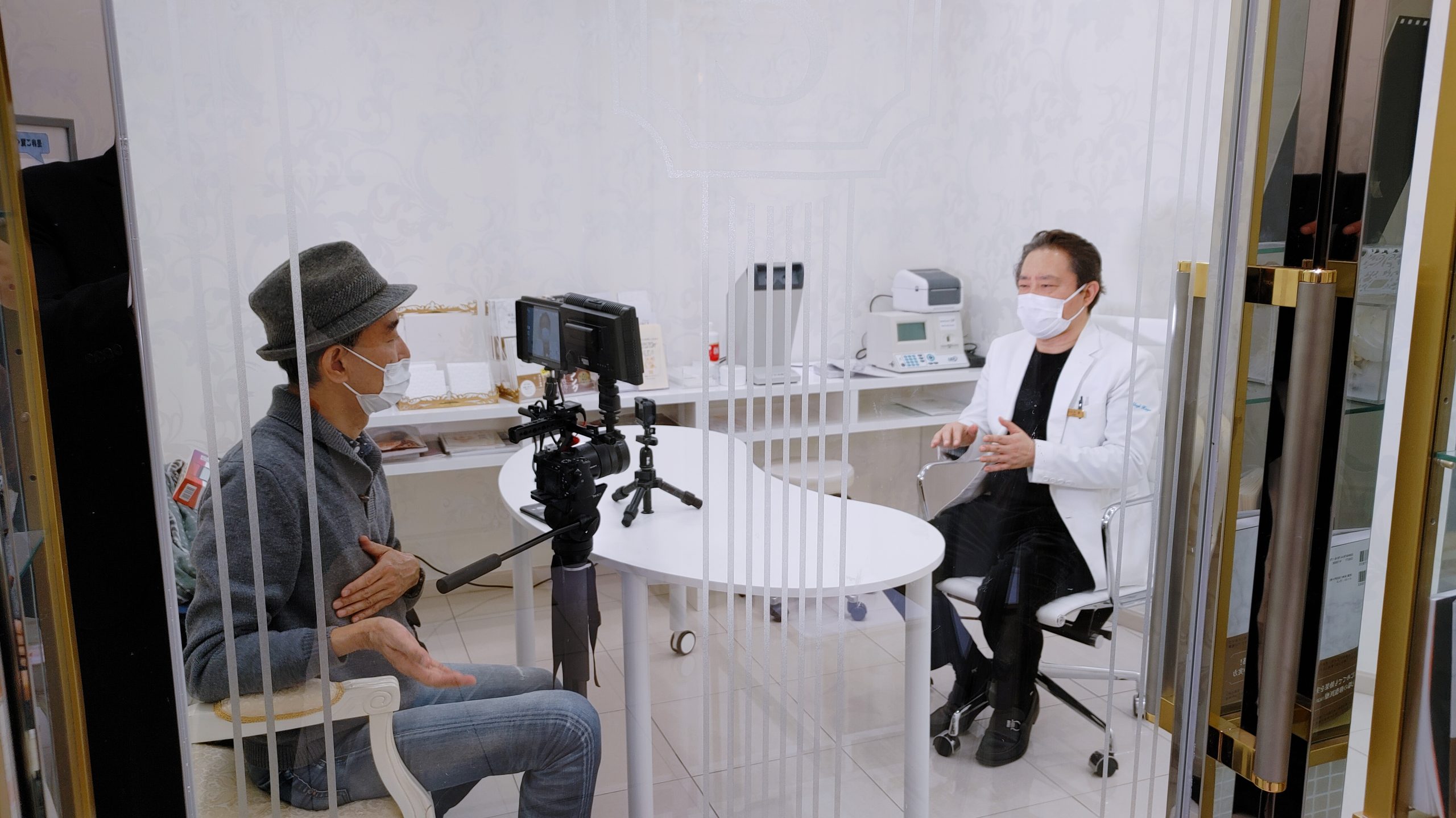Regenerative medicine, premised on stem cell transplantation, is entering a transitional phase with new approaches. Stem cells are not the main actors in regeneration; rather, the soluble components produced by stem cells have been demonstrated in various studies to repair organs along with one’s own stem cells.
As a result, challenges associated with conventional stem cell transplantation such as tumorigenesis, standardization, administration methods, preservation, and cultivation techniques have been addressed, paving the way for a new field called “restorative medicine” facilitated by SGF®.
Compared to stem cell transplantation, SGF® is considered safer as it does not involve cell transplantation, reducing the risk of tumorigenesis and other complications. Additionally, SGF® offers the advantage of using consistently standardized quality products. With the ability to choose mass production and efficient administration methods, SGF® holds promise for cost-effective use across a wide range of diseases. Administration methods include intravenous infusion, local administration, and nasal spray, with minimal invasiveness and almost no reported side effects.
Diseases with expected effectiveness
- Diabetes
- Liver disease
- Kidney disease
- Atopic dermatitis
- Rheumatoid arthritis (joint pain)
- Erectile dysfunction (impotence)
- Vascular endothelial cell damage due to hypertension
- Osteoarthritis of the knee
- Sequelae of cerebral infarction
SGF® Intravenous/Injection Therapy
Treatment of diabetes complications with Stem Cell Growth Factor (SGF®) therapy leads to vascular repair and shows effectiveness in preventing complications, attributed to its homing effect. Examination of the LOX-index (an indicator of the risk of stroke and myocardial infarction, which are complications of diabetes) also indicates vascular repair, and there is a tendency for improvement in creatinine levels, an indicator of renal dysfunction.

Vascular Endothelial Strengthening Intravenous/Injection
“SGF®” is expected to reduce the risk of developing diseases such as stroke-related disorders, diabetes, liver cirrhosis, hypertension, Alzheimer’s, atopic dermatitis, and rheumatism (joint pain). Administered “SGF®” circulates within the body, activating stem cells themselves to repair and regenerate damaged tissues. Additionally, it stimulates the pituitary gland to balance hormones, restoring the metabolic cycle to its normal state. With its ability to self-replicate and regenerate, it is also expected to be effective as the ultimate anti-aging care, including renewal of various tissues and skin tissues within the body.




